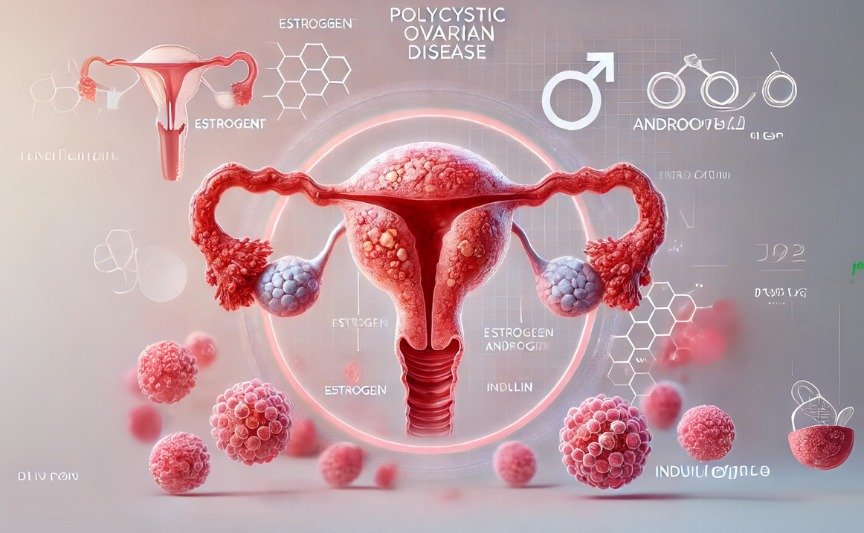PCOD
Polycystic Ovarian Disease (PCOD) is a common hormonal disorder affecting women of
reproductive age. It occurs when the ovaries produce excessive androgens (male
hormones), leading to irregular menstrual cycles, ovarian cysts, and metabolic issues. If left
unmanaged, PCOD can lead to complications such as infertility, obesity, and diabetes.
Seeking timely medical advice from the best endocrinologist in Saket can help in early
diagnosis and effective management.
Causes of PCOD
PCOD is caused by a combination of genetic, environmental, and lifestyle factors. Some
common causes include:
● Insulin Resistance: High insulin levels stimulate excessive androgen production,
leading to PCOD symptoms.
● Genetic Predisposition: A family history of PCOD or metabolic disorders increases
the risk.
● Hormonal Imbalance: An excess of male hormones can interfere with ovulation,
leading to irregular periods.
● Lifestyle Factors: Poor dietary choices, lack of physical activity, and stress can
contribute to hormonal disturbances.
Symptoms of PCOD
The symptoms of PCOD vary from person to person, but some common signs include:
● Irregular or missed menstrual periods
● Excessive facial and body hair (hirsutism)
● Acne and oily skin
● Weight gain and difficulty in losing weight
● Thinning hair or hair loss from the scalp
● Difficulty in conceiving due to irregular ovulation
If you experience any of these symptoms, consulting the best endocrinologist in Saket can
help in accurate diagnosis and personalized treatment.
Diagnosis and Treatment
A proper diagnosis of PCOD involves a combination of physical examination, blood tests,
and ultrasound. The treatment primarily focuses on managing symptoms and preventing
complications.
Lifestyle Modifications
● Healthy Diet: A balanced diet rich in fiber, lean proteins, and healthy fats can
regulate insulin levels.
● Regular Exercise: Physical activity helps in weight management and improves
insulin sensitivity.
● Stress Management: Yoga, meditation, and adequate sleep can help balance
hormones.
Medical Treatment
● Hormonal Therapy: Birth control pills or progesterone therapy can regulate
menstrual cycles.
● Metformin: This medication improves insulin resistance and helps in weight
management.
● Fertility Treatments: Ovulation-inducing medications can aid women trying to
conceive.
● Cosmetic Treatments: Laser therapy and medications can help reduce excessive
hair growth and acne
